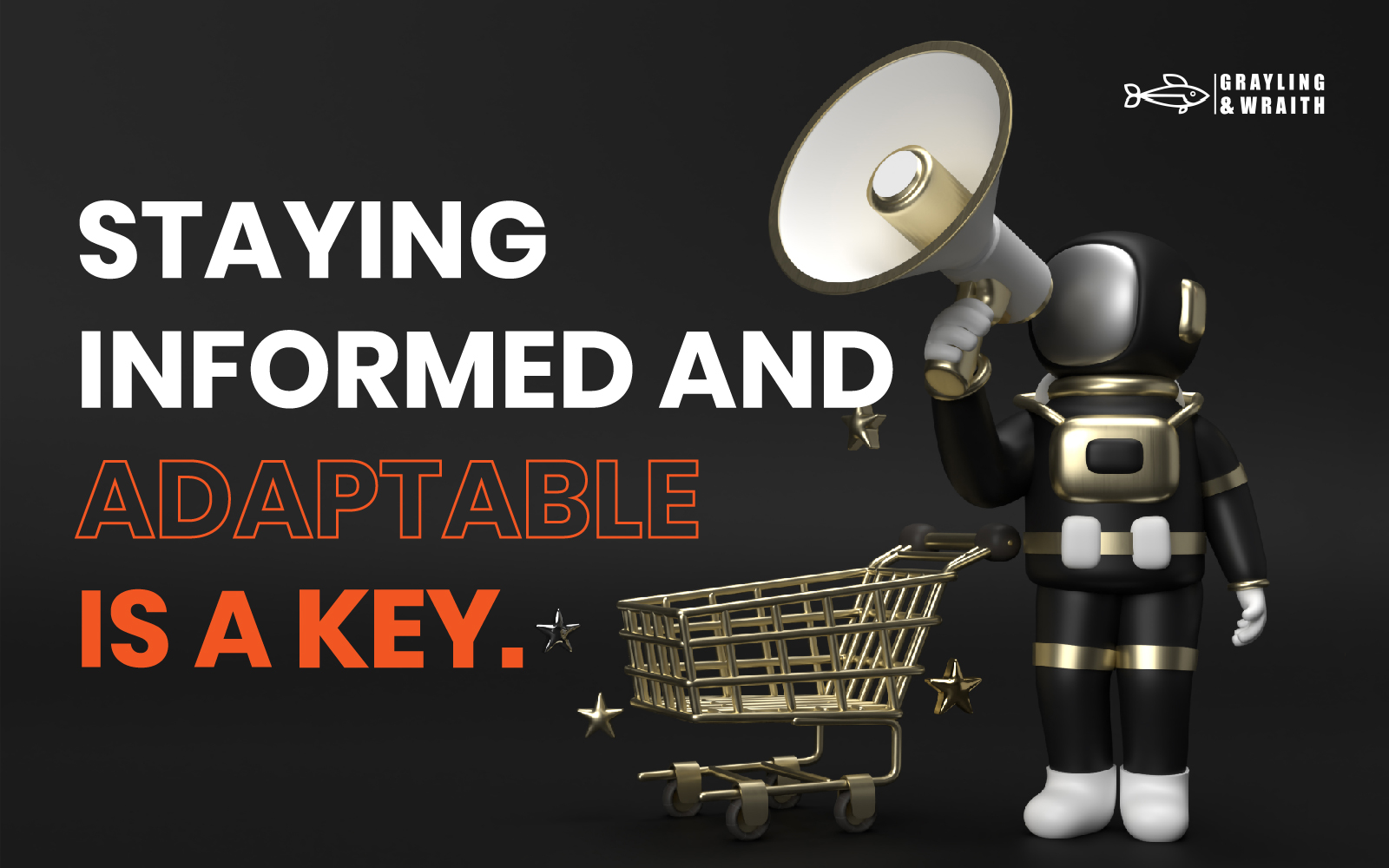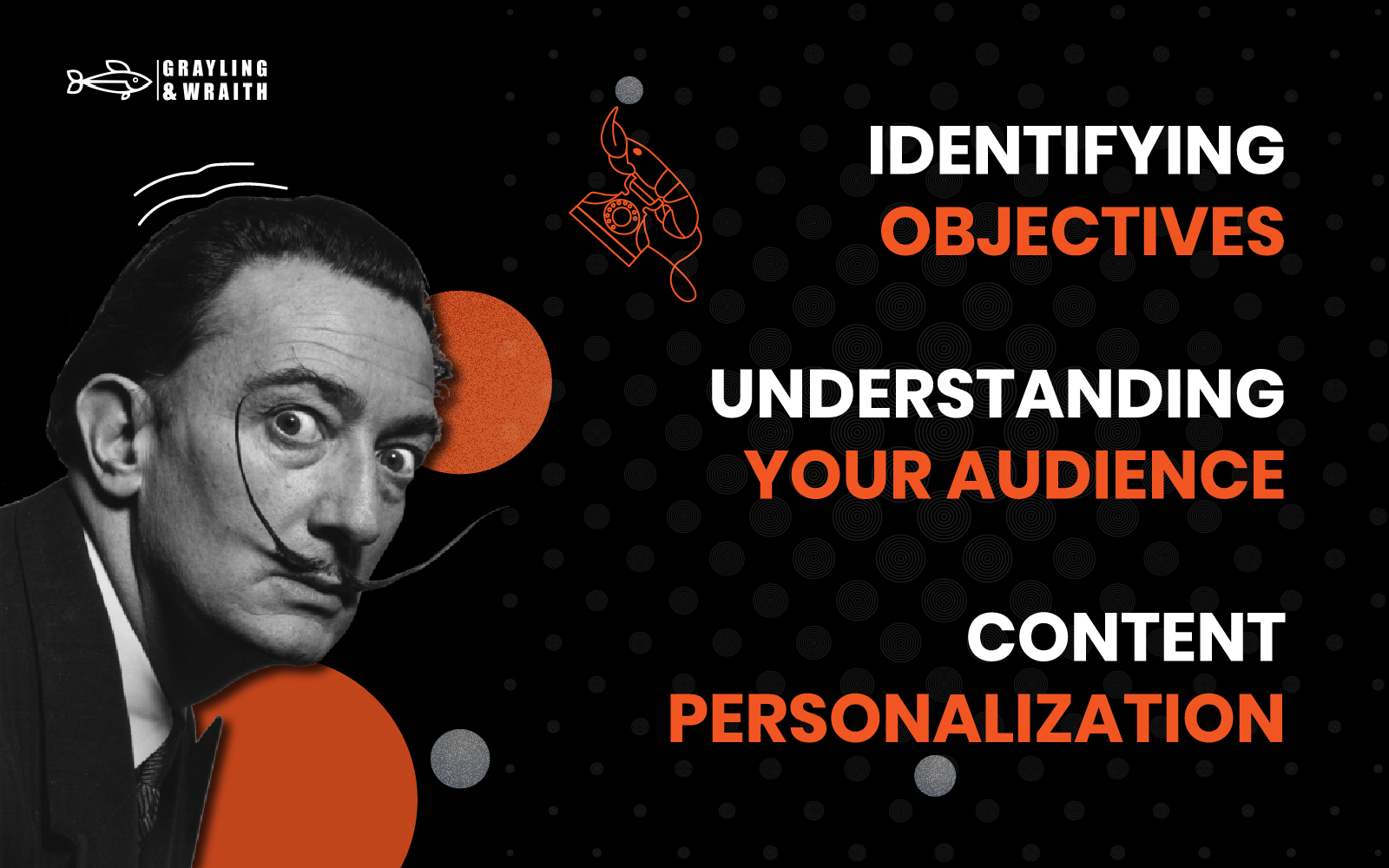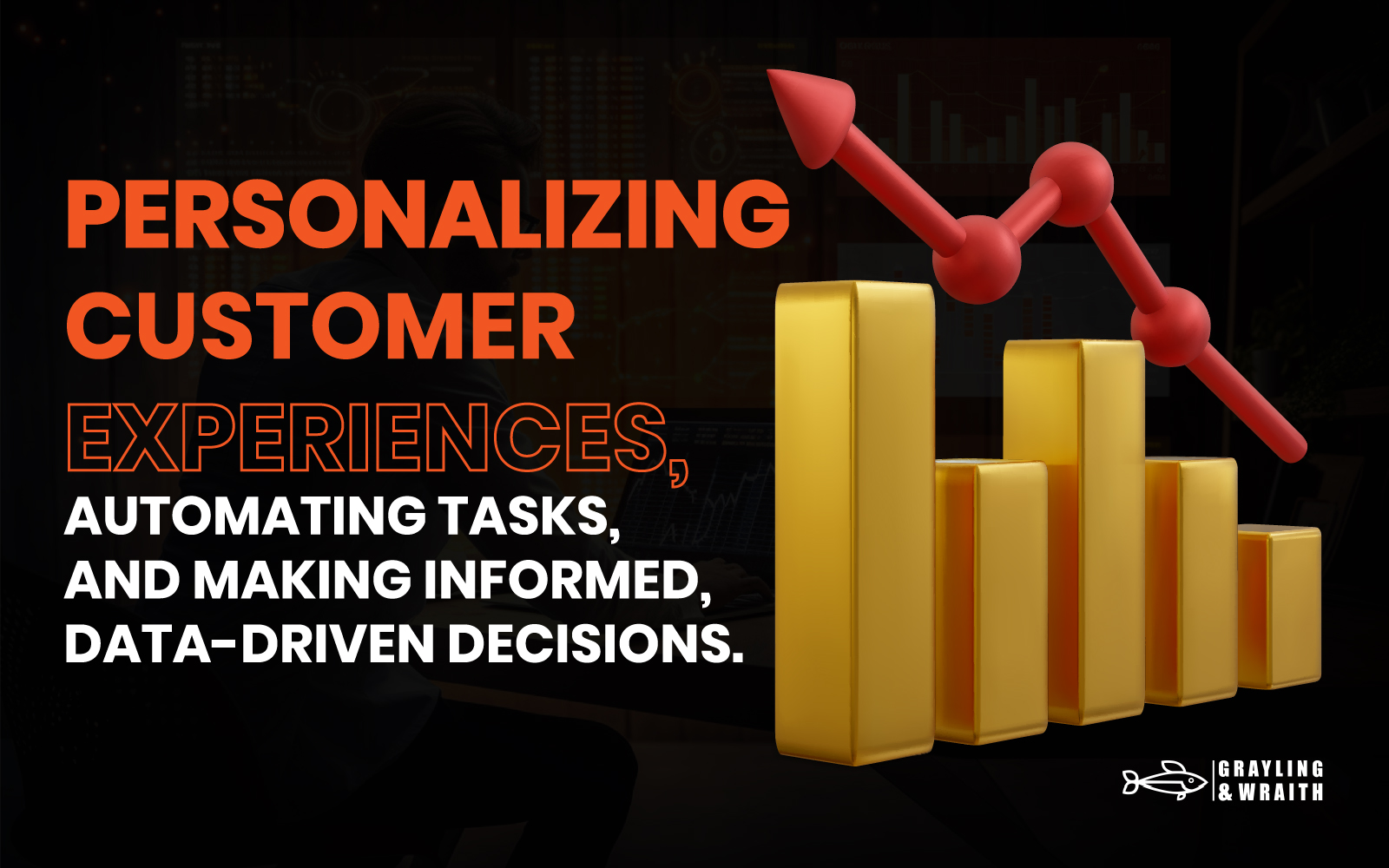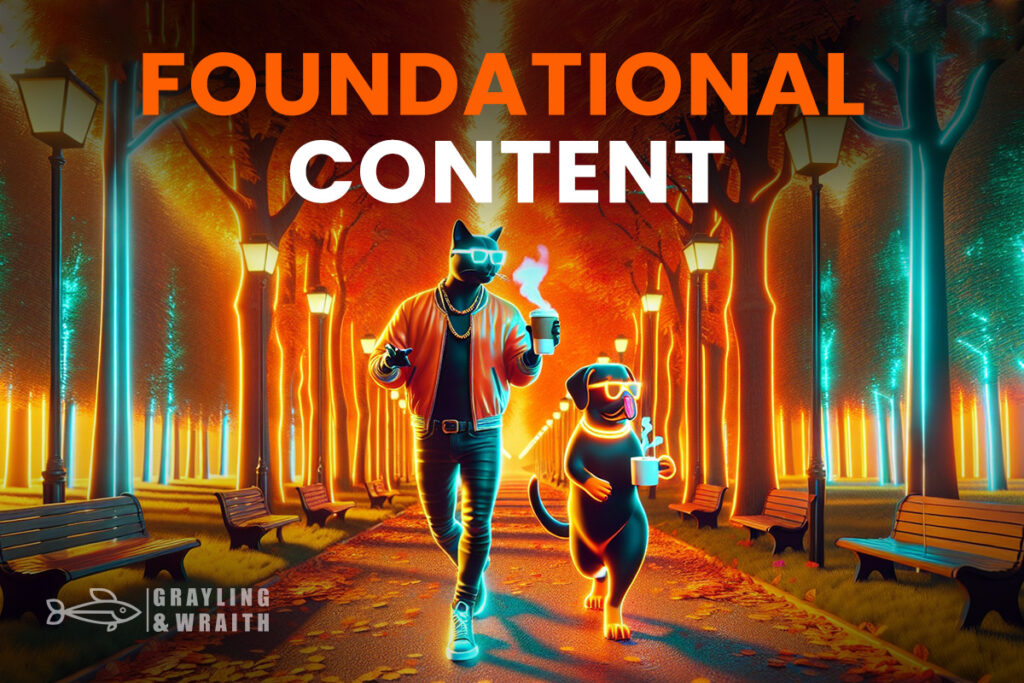In an era where data reigns supreme and customer preferences evolve at an unparalleled pace, Artificial Intelligence (AI) has surfaced as a groundbreaking force in the marketing domain. Importantly, central to this evolution is the strategic design of AI-driven marketing approaches. Specifically, designing an AI marketing strategy centers on using machine learning and data analysis. Moreover, these tools help predict trends, personalize content, and streamline efforts. Consequently, this technology lets businesses analyze data and anticipate trends. Furthermore, it helps create experiences that truly resonate with people, ultimately opening new ways to connect with audiences like never before.
The importance of AI in marketing cannot be overstated; it’s not just about staying ahead of the curve but harnessing a power that allows for more meaningful connections, efficient operations, and innovative strategies that drive growth and competitiveness.
This article aims to demystify the process of integrating AI into your marketing strategy. Whether you’re a seasoned marketer or new to the field, our goal is to guide you through the essential steps of creating an effective AI-driven marketing strategy. From understanding what AI can do for your business to implementing cutting-edge solutions, this guide will provide you with the knowledge and tools needed to transform your marketing efforts.
Integrating AI into Your Marketing Strategy: A Step-by-Step Guide
The digital marketing landscape is rapidly evolving. Those with AI capabilities are leading, offering unmatched customer experiences and achieving unprecedented results. Join us in exploring the dynamic world of AI in marketing. Take the first step toward revolutionizing your strategy. Our comprehensive approach provides clear, actionable insights. You’ll be on your way to leveraging AI’s potential. This will help you not just meet but exceed your marketing objective
To ensure the article spans at least 1500 words, we will expand each section. We’ll provide detailed analysis, practical examples, and insights from experts. This approach ensures comprehensive coverage of every AI marketing aspect.

Understanding AI in Marketing: Foundations of Designing an AI Marketing Strategy
The Definition of AI Marketing
AI Marketing at Its Core: In the realm of marketing, the advent of Artificial Intelligence (AI) has been nothing short of revolutionary. Indeed, AI marketing, at its core, involves the sophisticated application of technologies such as machine learning, natural language processing, and big data analytics. This integration transforms raw data into insightful, actionable strategies, which is vital for the design of an AI marketing strategy. As a result, it enhances every facet of the marketing cycle, from data collection to strategy implementation, thereby setting a robust foundation for understanding its comprehensive role in propelling innovative marketing strategies forward.
Designing an AI Marketing Strategy: Key Benefits
- Personalization Perfection: Central to designing an AI marketing strategy is the ability to personalize. AI’s data analysis delivers highly personalized experiences, tailoring content and recommendations to individual preferences. This personalization enhances engagement, loyalty, and conversions, showcasing AI’s significant role in marketing strategy personalization.
- Predictive Power: The predictive analytics aspect of AI allows marketers to forecast customer needs and behaviors accurately, an essential component in designing a proactive AI marketing strategy. This predictive power facilitates the crafting of forward-looking strategies that resonate with future consumer trends, keeping your brand consistently ahead of the curve.
- Automation Advantage: Automation is a cornerstone in the design of an AI marketing strategy, offering the dual benefits of efficiency and focus. By automating routine and repetitive tasks, AI allows marketers to dedicate more time to creative and strategic pursuits, thereby enhancing productivity and fostering an environment ripe for innovation and growth.
- Campaign Optimization: A well-designed AI marketing strategy leverages AI’s capability to continuously analyze performance data for optimizing marketing efforts. This ensures that resources are allocated efficiently, guaranteeing maximum impact with minimal waste and illustrating the critical role of AI in the strategic optimization of marketing campaigns.
Current Trends and Case Studies: Informing Your AI Marketing Strategy Design
- Emerging Trends in AI Marketing: In designing an AI marketing strategy, it’s crucial to keep up with the latest AI innovations. Significantly, the marketing landscape constantly evolves with new AI advancements. These range from AI-driven content creation to advanced customer segmentation tools. Therefore, staying updated with these trends is vital. It’s not only about maintaining a modern strategy; moreover, it’s also about using the latest AI features to keep your strategy innovative.
- Real-World Success Stories in AI Marketing: A critical component of designing an effective AI marketing strategy is understanding its practical applications and potential outcomes. To this end, understanding is best gained through exploring compelling case studies of industry leaders who have seamlessly integrated AI into their marketing endeavors. These real-world examples offer invaluable insights into the tactical aspects of AI implementation and the tangible benefits they bring. Consequently, by analyzing these success stories, you can glean best practices and innovative approaches to incorporate into your AI marketing strategy, ultimately ensuring it is grounded in proven methodologies and ready to tackle real-world challenges.
Making AI Marketing Work for You: Designing an AI Marketing Strategy
Embrace the Future with a Strategic Vision: The continuous evolution of AI presents a landscape ripe with opportunities for those prepared to embrace it not just as a tool, but as a cornerstone of strategic innovation. The key to making AI marketing work for you lies in how you design your AI marketing strategy. Firstly, understanding AI’s capabilities, benefits, and real-world applications requires in-depth exploration. Secondly, integrating AI into your marketing strategy goes beyond just keeping up with technology; indeed, it places you at the forefront of innovation. Furthermore, a well-crafted AI marketing strategy enables you to tap into AI’s transformative power. As a result, this approach ensures results that surpass expectations and also keeps your brand competitive in the dynamic digital landscape.

Developing Your AI Marketing Strategy
Identifying Objectives
Setting Clear and Measurable Goals: Before embarking on the integration of AI into your marketing strategy, it’s crucial to define what success looks like for your organization. Begin by identifying clear and measurable objectives. Whether aiming to increase customer engagement, boost sales, enhance personalization, or streamline operations, setting specific goals is crucial. These goals will direct your AI implementation and serve as a benchmark for success. Your objectives should follow the SMART criteria: Specific, Measurable, Achievable, Relevant, and Time-bound. This ensures that each initiative is targeted and its results can be accurately assessed.
Understanding Your Audience
Gaining Insights through AI: AI shines in its ability to analyze large volumes of data and uncover patterns and preferences that may not be apparent. Utilize AI tools to segment your audience, predict behaviors, and understand the customer journey. Techniques such as data mining, sentiment analysis, and behavior prediction can provide a deeper understanding of your audience, enabling you to craft messages and campaigns that resonate on a personal level. This understanding is key to not just targeting the right audience but engaging them in meaningful ways.
Content Personalization
Tailoring Experiences with AI: One of the most significant advantages of AI in marketing is its ability to create highly personalized content experiences. Firstly, through data analysis, AI can help determine the best content type, timing, and delivery channel for each customer segment. Subsequently, personalization can range from customized emails to dynamic website content, targeted advertising, and individualized product recommendations. Ultimately, this level of personalization enhances customer engagement and fosters a deeper connection with the brand. By leveraging AI to tailor these experiences, businesses can significantly enhance customer engagement, loyalty, and conversion rates. The goal is to use AI not just to reach more people but to connect with them more effectively, delivering relevant content, engaging, and timely.
When developing your AI marketing strategy, prioritize aligning AI integration with your specific goals and audience needs. Start by setting clear objectives. Then, gain a deep understanding of your audience. Next, focus on personalizing content. This approach ensures your strategy is both effective and efficient. AI provides the tools and insights needed to enhance your marketing. It makes your efforts more adaptive, predictive, and personalized than ever. With a thoughtful approach and the right AI applications, your marketing can become a dynamic, results-driven powerhouse.
Implementing AI in Your Marketing Efforts
Campaign Automation
Streamlining with AI: Implementing AI in marketing campaigns transforms them from static, one-size-fits-all messages to dynamic, optimized communications. AI has the power to automate and optimize various marketing efforts, such as ad campaigns, email marketing, and social media strategies. It ensures messages reach the right audience at the ideal time. AI analyzes user engagement and behavior to refine bidding strategies, segment audiences more accurately, and tailor messages on different platforms. These capabilities boost campaign efficiency and effectiveness. The result is higher engagement rates and improved ROI.
Customer Relationship Management
Enhancing Interactions and Loyalty: AI revolutionizes customer relationship management by providing deeper insights into customer preferences and behaviors. Through predictive analytics and machine learning, AI can help identify customer needs, anticipate issues, and provide tailored solutions. Additionally, it can automate responses in customer service channels, personalize recommendations in loyalty programs, and predict customer churn. By integrating AI into CRM systems, businesses can foster stronger relationships with customers, enhance customer satisfaction, and increase retention rates. This integration ensures a more proactive and responsive approach to customer management, ultimately leading to improved business outcomes.
Real-Time Decision Making
Adapting Strategies Instantly: In the fast-paced world of digital marketing, the ability to make quick, informed decisions is crucial. AI empowers marketers to leverage real-time data for making immediate adjustments to marketing strategies. AI facilitates rapid adjustments in marketing tactics, from modifying pay-per-click bids to updating messages for trending topics or reallocating resources across channels. Its analytical prowess and flexibility enable swift adaptation. This capacity allows for real-time decision-making. It keeps marketing strategies in sync with the evolving landscape. It also aligns with consumer behavior. This alignment optimizes both impact and efficiency.
In implementing AI across your marketing efforts, the focus should be on integration and alignment with your overall strategy. AI is not a substitute for human creativity and insight. Instead, it should be seen as a powerful enhancer of these attributes. Utilizing AI for tasks like campaign automation, customer relationship management, and real-time decision-making boosts marketing efficiency and effectiveness. It also makes your strategies more adaptable to the digital landscape’s constant changes. As AI becomes a part of your marketing toolkit, it’s important to keep evaluating and improving your methods. Use performance data and insights to keep your marketing strategies sharp and highly valuable.

Measuring Success and Scaling
Establishing Key Performance Indicators (KPIs)
Evaluating AI Effectiveness: Begin by defining Key Performance Indicators (KPIs) that align with your business objectives and provide a clear measure of your AI strategy’s impact. Notably, common KPIs include conversion rate improvements, customer engagement increases, or cost savings from automation. Furthermore, continuously track these indicators to assess performance and identify areas for optimization, thereby ensuring your AI initiatives are driving the desired outcomes. This approach enables you to refine your strategy over time, ultimately maximizing the effectiveness of your AI applications.
Fostering Continuous Learning and Adaptation
Cultivating a Dynamic AI Approach: AI in marketing is not a static entity; it thrives on iteration and enhancement. Promote a culture of continuous learning where feedback from AI-driven initiatives informs future strategies. Utilize A/B testing, stay updated with AI advancements, and encourage team discussions on insights and learnings. This approach ensures your marketing efforts remain agile and effective, adapting to new data and changing market conditions.
Strategies for Scaling Your AI Initiatives
Broadening AI Integration: As you become more comfortable and successful with AI, consider broadening its use in your marketing efforts. This expansion could include trying new AI tools for better customer segmentation, enhancing content creation automation, or using more advanced predictive models. It’s also important to assess your infrastructure’s scalability and your team’s AI readiness. This ensures that your growth is sustainable and continues to have a significant impact.
Addressing Challenges and Ethical Considerations
Navigating Challenges in AI Marketing
Overcoming Common Obstacles: Implementing AI in marketing comes with a set of challenges that need careful navigation. Data privacy is a paramount concern; ensuring customer data is used responsibly and in compliance with regulations is crucial. Integration complexities often arise when merging AI with existing marketing systems, requiring a thoughtful approach to systems architecture and data management. Additionally, maintaining transparency in AI-driven decisions is essential to build trust and credibility with customers. Addressing these challenges requires staying updated on legal requirements, investing in strong data governance practices, and ensuring transparent communication about AI usage in marketing campaigns. This proactive approach helps mitigate risks and build trust with customers
Upholding Ethical AI Practices
Committing to Ethical Standards: Beyond the operational challenges, ethical considerations are at the heart of AI adoption in marketing. It’s vital to commit to ethical AI practices. These practices include actively working to avoid bias in AI algorithms. They also ensure that AI respects customer privacy and preferences. This commitment involves implementing regular audits of AI systems. The purpose is to check for biases. Being transparent with customers about how their data is used is crucial. Additionally, providing options for customers to manage their data preferences is essential. Upholding these ethical standards not only protects your customers but also enhances your brand’s reputation and trustworthiness.
In addressing these challenges and ethical considerations, the focus should be on proactive strategies and policies that anticipate and mitigate risks. This means staying ahead of legal developments, investing in quality data practices, and fostering an organizational culture that prioritizes ethical considerations in all AI initiatives. By taking these steps, businesses can enjoy the benefits of AI in marketing while maintaining a responsible and customer-centric approach.

Final Thoughts on Designing an AI Marketing Strategy
Reflecting on Key Takeaways in Designing an AI Marketing Strategy
As we conclude this guide on designing an AI marketing strategy, it’s crucial to pause and reflect on the key insights gained. In marketing, AI emerges as a formidable tool for personalizing customer experiences, automating tasks, and making informed, data-driven decisions. The core of this journey lies in comprehending AI’s capabilities, delineating strategic objectives, and adapting to the continuous evolution of technology. It’s imperative to navigate challenges and uphold ethical standards diligently, ensuring not just success but also maintaining trust and integrity in your marketing endeavors.
Moving Forward with Your AI Marketing Strategy
Looking ahead, these insights become the building blocks for incrementally applying AI in your marketing strategy. Start with small, manageable AI applications and, as confidence and experience grow, broaden the scope of AI integration. Foster a culture of experimentation and continuous learning within your team, emphasizing the iterative nature of AI. Use each campaign as a lever to refine and enhance your strategies. Staying adaptable and proactive is key to leveraging AI effectively, keeping your marketing strategies not only innovative but also impactful in the dynamic digital landscape.
Curious about how AI can not only analyze but also create content? Dive into the fascinating world of generative AI with our comprehensive guide. Explore how it’s transforming creativity and innovation across industries. What is Generative AI? uncovers the future of automated content generation.

















